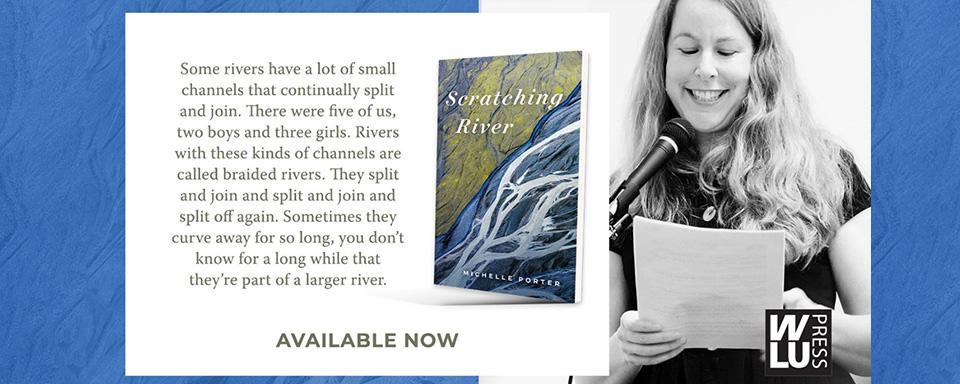
Q&A with Michelle Porter, Scratching River, Part 2
There’s so much to learn about ourselves just by observing the natural processes around us.
CH: What is “river morphology,” and how does it shape the way you tell the various threads of your story?
MP: I’ve always felt close to rivers, and I walk along them and write about them all the time. As a field of study, river morphology involves the description of the shapes of river channels and how they change in shape and direction over time. I came across a journal article that studied changes that had occurred to the Red River in Manitoba, and I was immediately struck with how the river changes over time and is like a living being in that way. I saw how the forces shaping the river mirrored the forces shaping my mother, siblings, and I — and that it was in resisting the flow and meander of the river of emotions that my own healing had been blocked. There’s so much to learn about ourselves just by observing the natural processes around us. My older brother and rivers taught me about healing. The shape of the story mirrored the braiding rivers that I read about, how strands of the story separate from the main thread but cross over all the time and always remain connected. The book is shaped like a braided river.
CH: How did your brother’s experience lead to activism and advocacy?
MP: This book is a large piece of advocacy work for my brother, for others with mental disabilities, and for the family members of people with mental disabilities. The book A Child Called Noah, by Josh Greenfield, a book about raising his autistic son, was an important book in our house, a resource and a comfort. This book has a similar intent although the structure of Scratching River is very different than Josh Greenfield’s diary entries. This book brings attention to my brother’s story but also more broadly to the difficulties and risks parents face when they can no longer care for their adult mentally disabled children. Canada can do better, and this book quietly points to the challenges faced and the still unresolved challenges in finding housing for the mentally disabled. If it is true, as Mahatma Gandhi said that “the true measure of any society can be found in how it treats its most vulnerable members”, then Canada has a long way to go.